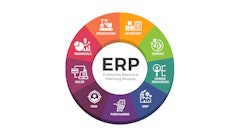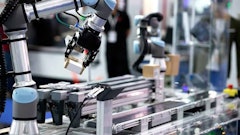San Francisco: As part of its ongoing commitment to conservation, U.S. Foodservice’s San Francisco purchased 40 methanol fuel cells to power pallet jacks in its Livermore, CA, food distribution facility.
U.S. Foodservice expects to save 620,000 kilowatt-hours annually and reduce its carbon emissions by 540,000 pounds using the OorjaPac Model 3 units from Oorja Protonics. The company’s green initiatives are a leading force within the food service industry.
Additionally, U.S. Foodservice is gaining significant operational efficiencies as the fuel cells eliminate the need for a battery swap mid-shift. This translates to an estimated four hours of productivity savings per day or about 920 hours per year, which greatly accelerates the return on investment.
”We are always trying to identify new ways to make every step of the path to the plate as environmentally friendly as possible,” says Phil Collins, president of U.S. Foodservice’s San Francisco. ”Green technology is constantly evolving, providing us with opportunities to optimize our operations while dramatically reducing our impact on the environment. Environmental sustainability and continued economic growth should be a priority for every business.”
Forty pallet jacks are being retrofitted with the methanol fuel cells. These fuel cells provide a constant charge that puts less strain on the jacks’ electrical systems, which increases the jacks’ longevity.
Methanol is an alternative liquid transportation fuel that is derived from various sources including wood, grass, landfills, natural gas and coal. The fuel cells generate electricity by converting the chemical energy stored in fuel into electrical and thermal energy. The byproducts of the electrochemical reaction are heat and pure water.
After a month-long trial period, U.S. Foodservice saw demonstrably increased productivity using the methanol fuel cells. With longer charges than traditional batteries, the fuel cells outlast their predecessors, running for a full eight hours, versus an average four to six hours.
Initially, methanol fuel for the OorjaPac fuel cells will be sourced locally through Oorja Protonics but options for U.S. Foodservice to self-source methanol through its own waste generation are also being explored.
“U.S. Foodservice’s leadership in implementing green solutions that are both good for the environment and good for business is an important step forward,” says Sanjiv Malhotra, founder and CEO of Oorja Protonics. ”We are very pleased to be selected by them to help achieve these goals.”















